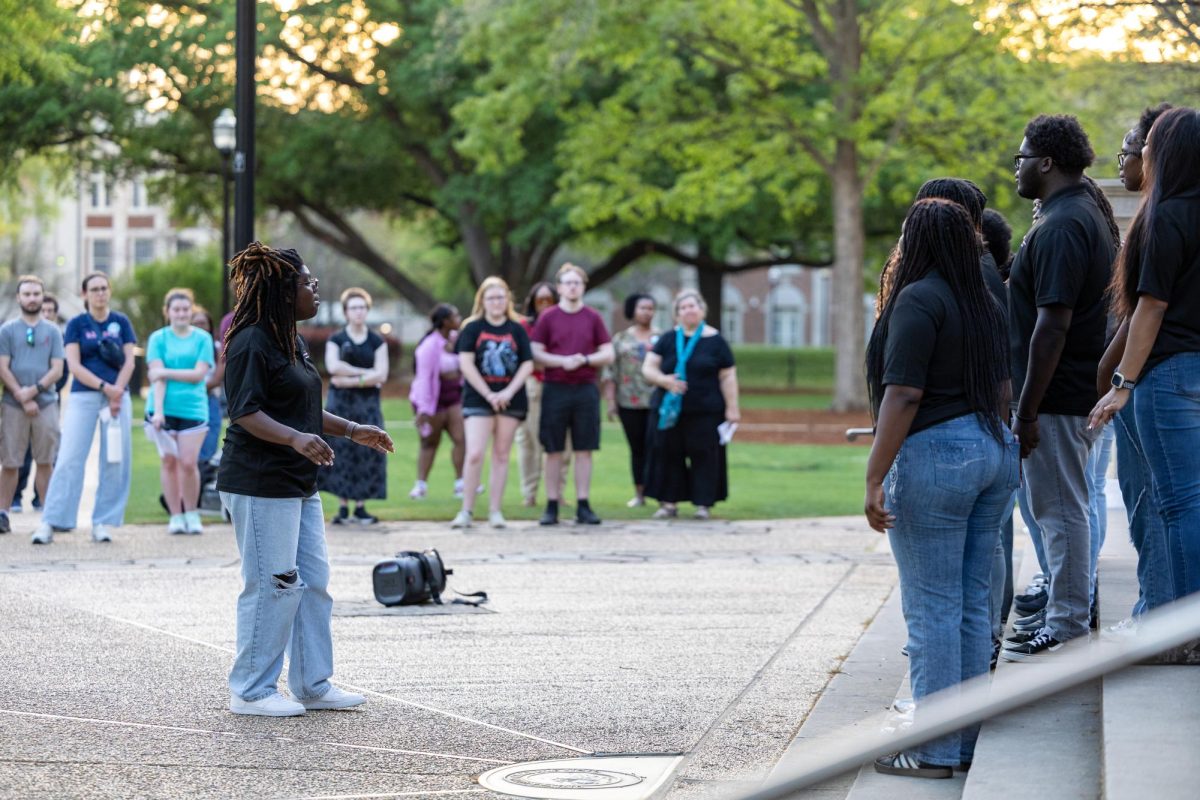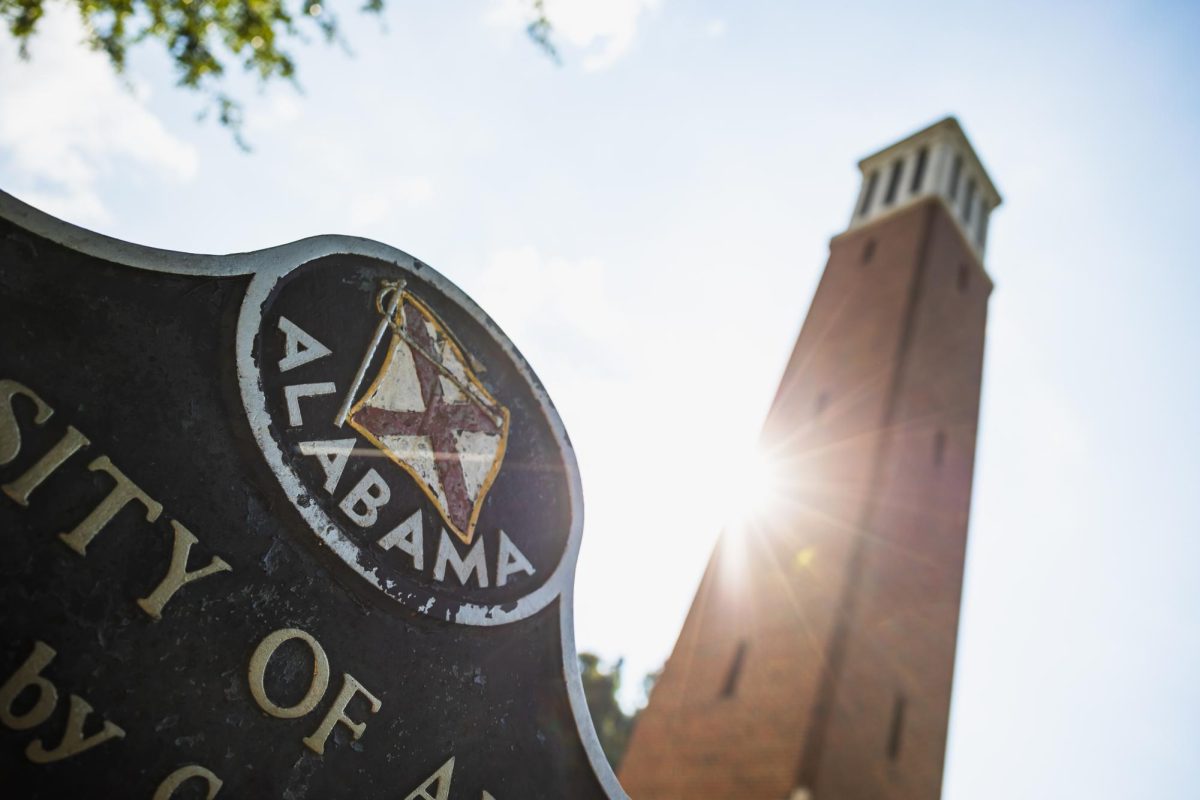SGA Vice President for Student Affairs David Wilson first heard about the Machine, a secret political coalition of traditionally white fraternities and sororities at the University of Alabama, even before he arrived on campus as a freshman. Three years and two SGA elections later, even as he sits in a position for which he ran as a Machine-backed candidate, Wilson will admit that he has long had concerns about the organization and how it operates.
“If you grow up in Alabama and you go to UA, you’re going to hear about it,” Wilson said. “I remember doing research on the Machine when I was a senior in high school. It’s an important thing on our campus – you always hear about this thing at the center of our greek system, and I wanted to know what I was getting into.”
Wilson said that during this research, he read and heard about how the Machine controlled a bloc of greek voters. He read online about physical intimidation the organization had allegedly carried out in the past against those who didn’t agree with its choices, and he knew from people he’d talked to that the organization was real.
For him, though, the Machine became real – and wrong – in fall 2009, when he arrived as a freshman looking to get involved with campus politics.
Arriving on campus
Wilson brought his questions about the Machine from high school to campus in 2009, and after becoming a Phi Gamma Delta pledge and First Year Councilor that semester, had conversations about it when he began to express an interest in running for SGA office. He met people who referred to the Machine as Theta Nu Epsilon, or TNE, and discovered that the group would go as far as sending text messages to those who talked about the Machine in public telling them to stop.
Other people Wilson met, however, would answer his questions.
“I had a friend of mine who’s older, and she was really involved in student government,” Wilson said. “She explained to me that there are two members from each house, and they go to these meetings and they decide who to vote for and they ‘come up’ and tell you who to vote for. [She said] once you get to campus, you need to start figuring out who these people are and getting them to know you.”
Wilson said that conversation raised red flags for him immediately.
“[She] wasn’t telling me to get to campus and meet as many people as possible. She’s saying you need to suck up to these few people and that will help you excel. And that just wasn’t right,” he said.
As the year went on, Wilson said he learned more about the structure of the organization and how exactly it chooses candidates for SGA executive council, SGA Senate and homecoming queen.
“They have the executive board…president, vice president, treasurer, etc., and have two representatives from each house, an older one and a younger one,” he said. “The older one is the one that gets to make a choice and gets to say ‘this is who I support.’ The younger one can make a case for people, but when it comes to questions of who you want for SGA president [or] who you want for homecoming queen, the older one is the only one who decides. Each house gets one vote.”
Wilson said 28 fraternities and sororities send representatives to the Machine’s meetings, an action referred to by greeks as sending someone “downstairs.” Machine-backed SGA officials – from senators to the SGA president – are referred to as “upstairs.”
When asked, Wilson declined to name any “downstairs” officers involved with the Machine.
The voting bloc of 28 houses is kept in order by a looming threat, real or not, of social repercussions for houses that challenge the Machine’s choices, Wilson said.
“That’s not right,“ he said. “There have been times when a member of a house has gone against the Machine and they’ve said, ‘we’re not going to support anyone from this house for x number of years.’”
All the red flags, however, didn’t stop him from seeking the Machine’s help at first to run for office – instead, he said he dreamed of changing the Machine from the inside.
Rising through the ranks
“As a freshman, I remember thinking…one day, if I’m ever SGA president, I’m going to fix this,” Wilson said. “I always told myself, what I’ll do is I will become SGA president, work with the Machine, change the Machine internally and try to get them to follow me and then speak out against it when I’m done.”
For Wilson, that plan began with seeking an SGA Senate seat – with help from the Machine.
“Have I ever received money from the machine? Yes. I received 50 dollars for my senate campaign,” he said. “[It was] delivered in an envelope, cash. My Machine rep gave it to me…and I knew who it was from. It said ‘David Wilson, Phi Gamma Delta’ on there.”
The Machine’s donations to Wilson’s campaign didn’t break any rules, according to Kelli Knox-Hall, SGA Elections Board co-convener.
“Candidates can accept donations from greek houses, student organizations, family members and friends,” she said. “They are required to submit Financial Disclosure forms that outline the amount of the donation and the source of the funding.”
Wilson said that when he received money from the Machine, he reported it on his financial disclosure record. He said he used his money to purchase stickers and Facebook ads for his campaign in March 2010, the second semester of his freshman year. He won.
As a senator, Wilson said he attended meetings held in a Machine-fraternity basement and conducted by one of the Machine’s “downstairs” officers that served the purpose of party meetings – all Machine-backed senators would attend and be given instructions on how to vote on legislation.
It wasn’t until his sophomore year, while serving as a senator, that Wilson began to realize that the Machine had a negative effect on the greek system, not just on independent students, he said.
“I started to see my friends not get into positions when I thought they deserved positions, and would have won if they’d had a fair shot,” Wilson said. “I saw greeks not even get a shot because somebody literally came out and said, ‘You can’t do this. She’s going to do this, and don’t fight us.’ It was sad to me. It was frustrating, because these are my friends. These are people telling my friends, you can’t follow your dreams.”
It was at that point, Wilson said, that he decided changing the Machine from the inside wasn’t possible. He decided to come out against it after a successful campaign for Vice President of Student Affairs – a campaign to which the Machine donated $100, according to Wilson.
“I thought…maybe it might be better for me to go to my friends in the Machine and tell them, I don’t agree with things this organization does and things this organization stands for as it stands right now, and unless this changes, I’m going to run in March and not accept the endorsement of this party,” he said.
When he told them just that, Wilson said he experienced mixed reactions.
“They disagreed with my viewpoints, but a lot of them agree. And a lot of them said that they agree with me, and I think that they’re really working to change…my friends in the Machine, they have agreed with what I say and they’re working to change themselves to do what’s best for the campus,” he said.
Wilson declined to elaborate, but said that he has, at least once, spoken to a UA administrator about the Machine. When asked, he would not give the name of the administrator. Instead, he stated that he preferred everyone else involved speaking out on his or her own.
“The greeks are smart,” Wilson said. “I have full faith and confidence in our greek system at the University of Alabama, and in that the people in our greek system are of the best and brightest, and in that we are ready to make our own decisions, and that we can. And that us making our own decisions is better than a secret political party telling us what to do.”








